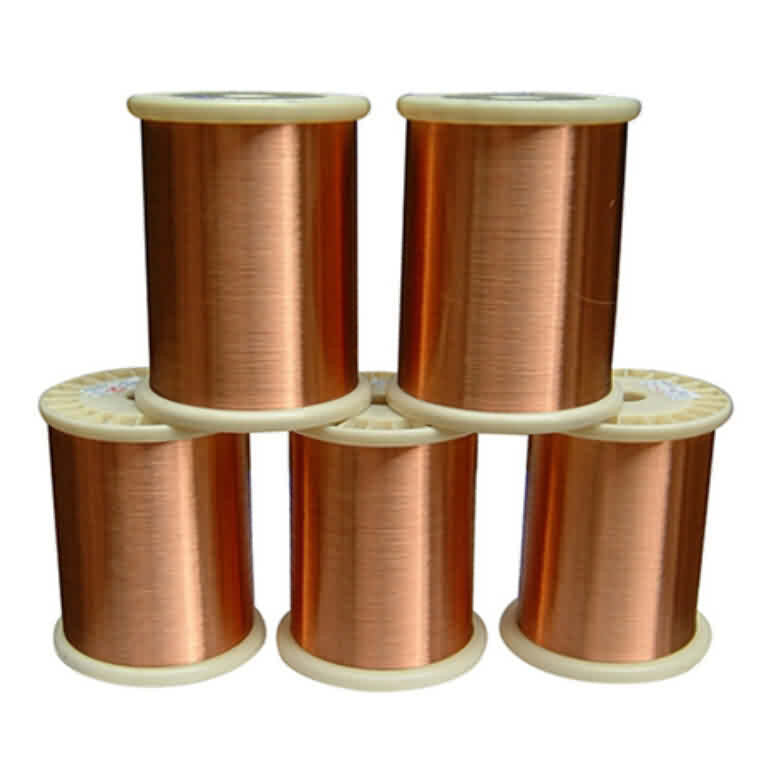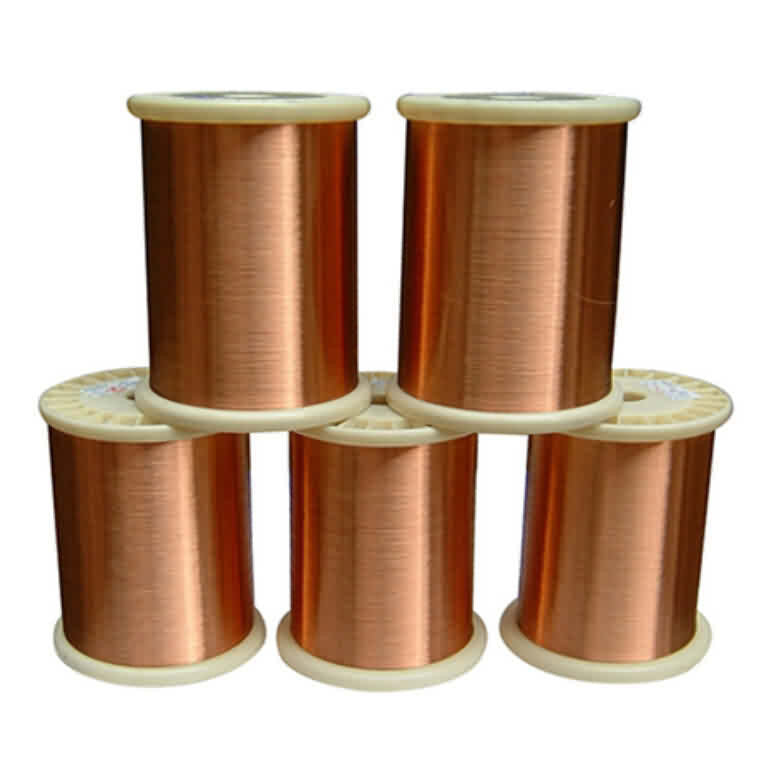Enameled Copper Wire by Spool
Enameled Copper Wire by Spool
Description
Enameled Copper Wire in Spool
Description:
Enameled copper wire, also called Magnet Wire, is primarily used in types of energy transformation. It is also used in electrical cables for signal transmitting. DIY hobbyists also use it in RC and other electronic projects.
Applications:
Perfect for Winding Coils, Inductors, Transformers, Lighting, Ballasts, Relays & Timers, Motor Applications. Insulated with polyurethane and nylon.
Specifications
* Conductor: Soft copper solid round conductor
* Insulation: Insulation base coat: modified polyester resin. Overcoat: modified amide imide resin. (High tech enameled insulation)
* Color: Amber (typical)
* Thermal Class: 200°C (392°F), thermal index (N)
Properties
* Excellent thermal stability, excellent dielectric and mechanical properties.
* Very good chemical resistance to common solvent and coolants.
* Better sliding during coil insertion in slots (reduced friction factor).
* High resistance to abrasion.
* Chemically resistant to freon: 12, 22 and 134 A
General Knowledge
The Properties of Enameled Copper Wire
Copper wire is used all over the world in electrical equipment. Enameled copper wire, also called "magnet wire," is also widely used. The difference between the enameled copper wire and regular wire is in the insulation surrounding the wire. Normal copper wire is insulated by wrapping it in thick rubber. Enameled copper wire is insulated by coating it with enamel. It is primarily used in three types of applications. It is used, in transformers to transform one kind of electrical energy into other kinds. It is used in motors to transform electrical energy into mechanical energy. It is also used in generators to transform mechanical energy into electrical energy.
Size:
One of the primary properties that makes enameled copper wire desirable for these applications is the enameling insulation. Transformers, motors and generators are all machines based on the coil, which is a device that generates magnetic fields and electrical currents using large coils of wire. The smaller these devices are, the stronger they are. Because enameled copper wire is insulated by a thin coat of copper instead a thick sleeve of rubber, it takes up less space, and so can make more effective coils.
Resistance to Corrosion:
The third feature of enameled copper wire that makes it so attractive for use in these devices is its resistance to corrosion. Almost all metals rust, but some rust more quickly than others. While silver is an excellent conductor, it rusts far too quickly to be of any value in electrical equipment. Due to its high resistance to corrosion, copper is the material of choice for use in electrical circuits, as it will last a long time.
Gauges:
Enameled copper wire comes in the same range of gauges that ordinary wire does, from about 5 AWG to about 40 AWG. "AWG" stands for American wire gauge. These gauges correspond to diameters of 182 thousandths of an inch to three thousandths of an inch.
Enamel:
The enamel insulation of magnet wire is formed of a chemical called polyesterimide. This is a class H insulation, as rated by the Institute of Electrical and Electronics Engineers. This is the highest possible rating, and means that the wire can withstand temperatures of 356 degrees Fahrenheit for at least 20,000 hours. This makes enameled copper wire capable of carrying more current than wires of the same size insulated with anything else.


